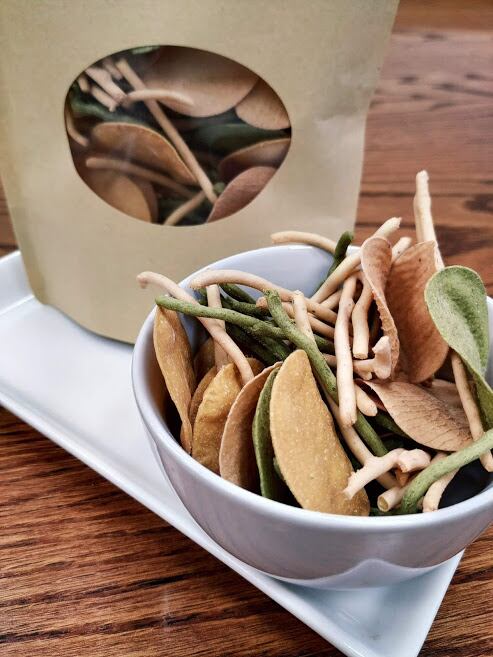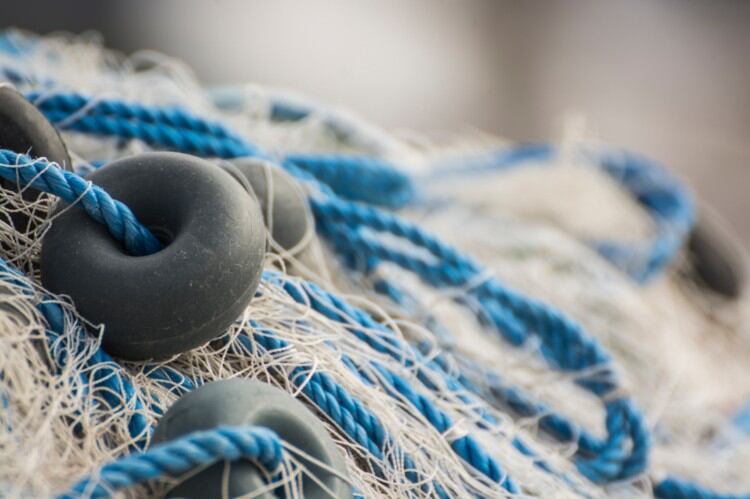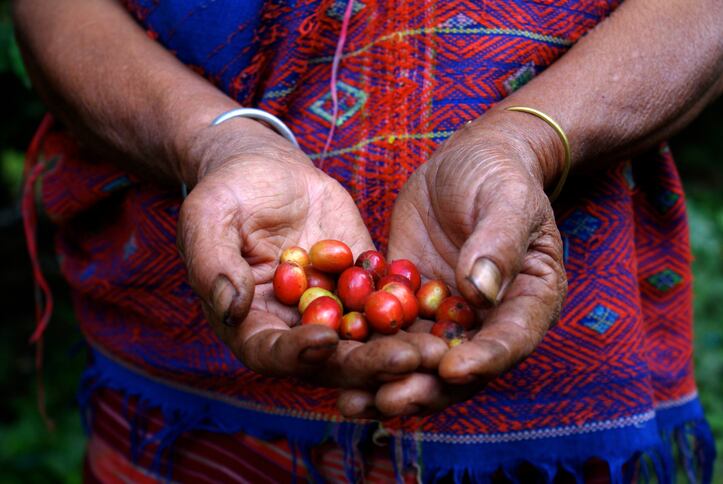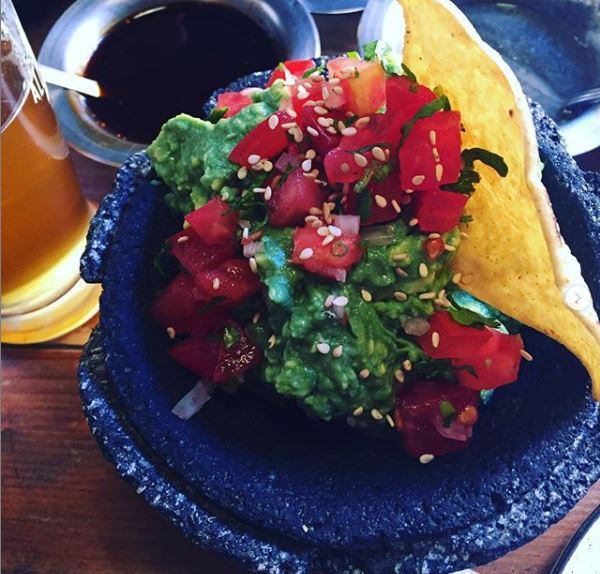Family-owned, Chilean company Pesquera Lacks has commercialized frozen and minimally processed fish and seafood for the past 30 years but recently moved into processed and finished products.
“We became aware that the consumption of fish and seafood is very low,” said the company’s CCO, Carla Carrera. “The World Health Organization
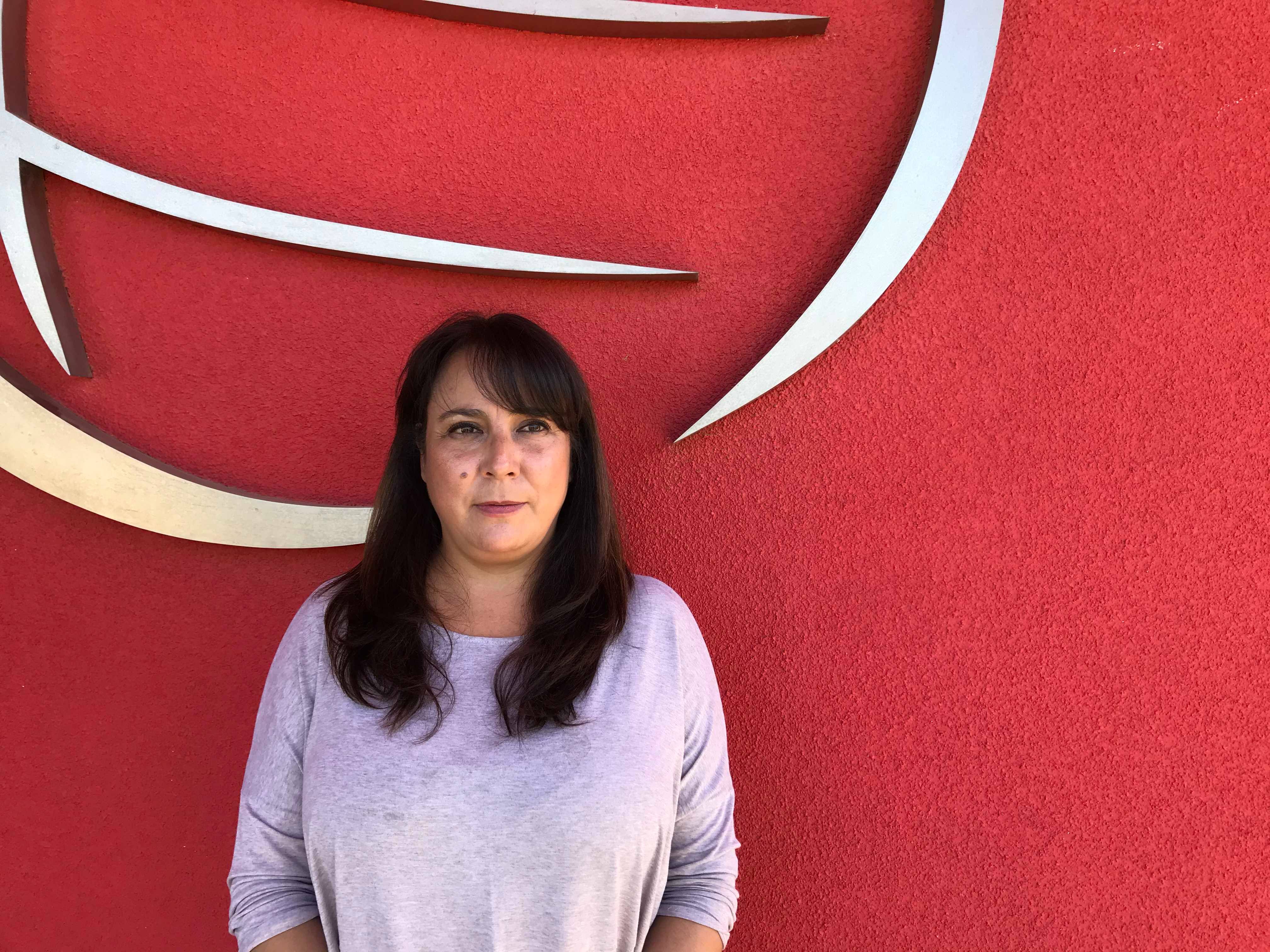
recommends eating around 20 kilos a year and Chile has a per capita consumption of 13 kilos a year. This low level is a reality not only in Chile but also across Latin America and the Caribbean – it is never more than 13 kilos.”
Pesquera Lacks studied the market and identified several barriers to consumption: price, preparation time, fishy smells and consumers who don't know how to cook the products. It therefore decided to develop ready-to-eat products that have the same nutritional and functional properties as whole fish and seafood.
The company approached CORFO, a Chilean government agency that provides support to start-ups and businesses, which recommended it work with CREAS, a food research & development center based in Valparaiso region that helps food companies with new product development.
Together, they developed two products, which are in the process of being commercialized.
Its baked snack mix is made of 50% salmon, prawns and mussels with potato, and has a savory, relatively neutral flavor while the smoked salmon pieces are made from salmon that is marinated in natural vegetable extracts to give vibrant colors.
Adding value
Pesquera Lacks uses fish and seafood that are valued below the standard market price as they do not fit manufacturers’ or retailers’ aesthetic criteria. The prawns and mussels used in the snacks are too small while the salmon is white in color.
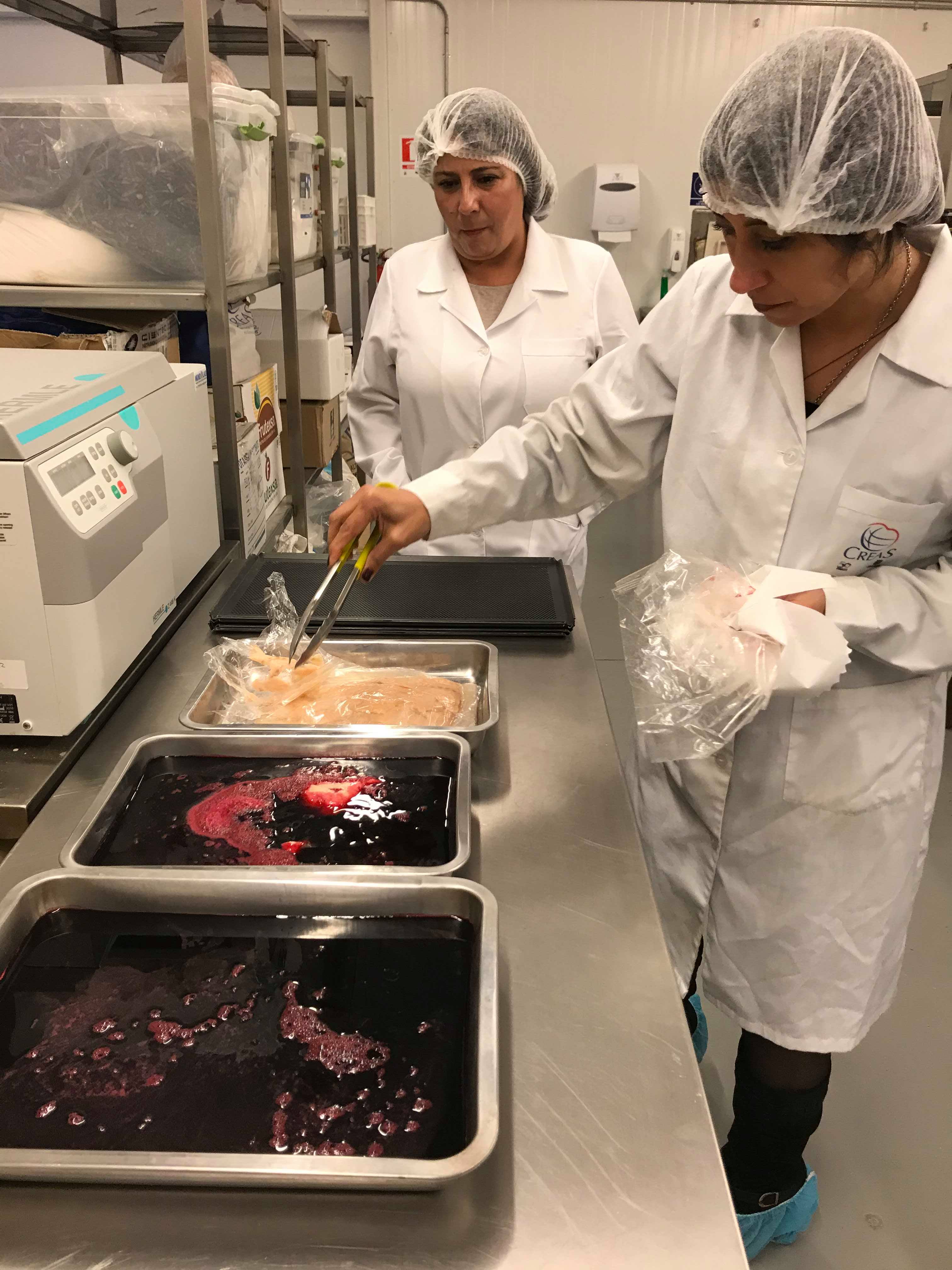
Farmed salmon is fed fish meal that is fortified with the naturally red micro-algae, astaxanthin, to give the fish a pink color. However, a certain percentage of the salmon do not absorb the micro-algae pigment and has white meat. Pesquera Lacks buys this white salmon that it salts, cold-smokes and marinates in vegetable extracts to give a deep red and orange color.
“It loses so much of its value only because of its color even though it has all the same nutritional characteristics as any other salmon. We wanted to give an added value to this product,” said Carrera, speaking to FoodNavigator-LATAM at the CREAS headquarters on the campus of the Pontifical Catholic University of Valparaiso.
The natural colors used also increases the antioxidant and polyphenolic content of the finished product, which has an ORAC unit content of up to 3,000 compared to just 20 for astaxanthin-fed salmon, said Jennifer Wilckens, CREAS development engineer.
Pesquera Lacks expects demand for the smoked salmon to come from high-end foodservice operators and hotels, which can create gourmet dishes with the colors, Carrera said.
According to Carrera, the Valparaiso-headquartered company is focusing its commercial strategy first on the baked snack line, which will allow it to build up funds before scaling sales of the frozen, smoked salmon products, which require expensive cold chain distribution.
Asia and Mexico have export potential
Both products are launching in Chile but Pesquera Lacks sees big potential demand for the snacks in Asia, where savory, seafood snacks are an everyday staple, and in Mexico, where snack consumption is high and healthy eating concerns are on the rise.
It has already had interest from several Mexican distributors, including Sigma for the stacks and in January will begin a soft launch on Amazon Mexico.
It is currently in the process of expanding the capacity of its plant in Valparaiso and will have a monthly production capacity of up to 5,000 kilos of finished product by the end of November.
The snack product currently has one Chilean nutrition warning label for salt content but the company is in the process of tweaking the recipe to remove it, Carrera said.
A global fish and seafood powerhouse, Chile is the largest aquaculture producer in South America and the second biggest exporter of salmon in the world after Norway.

